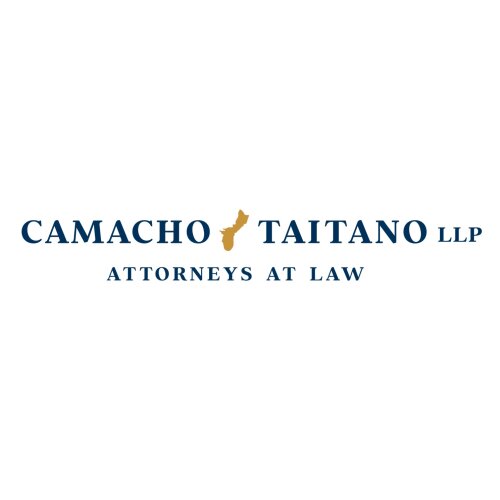Best Corporate & Commercial Lawyers in Guam
Share your needs with us, get contacted by law firms.
Free. Takes 2 min.
Or refine your search by selecting a city:
List of the best lawyers in Guam
About Corporate & Commercial Law in Guam
Corporate and commercial law in Guam refers to the legal framework that governs how businesses are established, operated, and regulated on the island. This area of law includes the formation, management, and dissolution of companies, as well as the negotiation and enforcement of commercial contracts. Since Guam is a United States territory, it follows a combination of local statutory law and applicable federal laws. Businesses in Guam range from small, family-owned ventures to large international companies, making corporate and commercial law an important field for both local entrepreneurs and foreign investors. The law covers a range of activities and entities, including corporations, partnerships, limited liability companies, and non-profit organizations.
Why You May Need a Lawyer
There are several situations in the corporate and commercial sector where consulting a lawyer is beneficial or even essential. Here are some common scenarios:
- Starting a business and choosing the most suitable legal structure
- Drafting or reviewing business contracts and agreements
- Ensuring compliance with local and federal regulations
- Handling mergers, acquisitions, or restructuring of companies
- Resolving business disputes or litigation
- Protecting intellectual property or negotiating licensing agreements
- Securing permits and licenses specific to Guam’s business environment
- Navigating employment law issues as an employer
- Complying with tax obligations and structuring tax-efficient transactions
- Dealing with government tenders or procurement processes
Lawyers help minimize risk, protect your business interests, and ensure that all actions taken are within the bounds of Guam’s corporate and commercial laws.
Local Laws Overview
Guam’s corporate and commercial laws are influenced by its status as an unincorporated US territory. The primary statutory laws are found in the Guam Code Annotated, particularly Titles 18 (Business Structures), 13 (Commercial Transactions), and 11 (Taxation and Employment).
Key aspects include:
- Business Entities: Guam allows formation of corporations, limited liability companies, partnerships, and non-profit organizations. Companies must register with the Department of Revenue and Taxation.
- Commercial Contracts: Commercial transactions are governed by the Uniform Commercial Code as adopted in Guam, which includes sales of goods, negotiable instruments, and secured transactions.
- Employment: Businesses must comply with both local labor laws and applicable federal laws, such as those related to minimum wage, workplace safety, and anti-discrimination.
- Licensing and Permits: Most business activities require a license from local authorities. Special sectors like banking and insurance are more strictly regulated.
- Foreign Investment: There are specific rules for foreign companies and investors, including certain sectors where foreign ownership may be limited.
- Dispute Resolution: Business disputes can be resolved through litigation in the Superior Court of Guam or, where applicable, through alternative dispute resolution mechanisms.
Staying compliant with these laws ensures business operations run smoothly and reduces the risk of penalties.
Frequently Asked Questions
What types of business entities are available in Guam?
Guam offers several entity types, including corporations, limited liability companies (LLCs), partnerships, and non-profits. Each has different requirements for registration, management, and taxation.
How do I register a business in Guam?
Business registration is handled by the Department of Revenue and Taxation. Filings typically include articles of incorporation or organization, a business license application, and payment of fees.
What ongoing compliance requirements are there for corporations?
Corporations in Guam must file annual reports, pay franchise taxes, maintain a registered agent, and keep corporate records up to date.
Are there any restrictions on foreign-owned businesses?
Foreign ownership is generally permitted, but some industries may have restrictions or special licensing requirements. It is important to check sector-specific regulations if you are a foreign investor.
What laws govern business contracts in Guam?
Commercial contracts are usually governed by Guam’s version of the Uniform Commercial Code as well as general contract principles in the Guam Code Annotated.
How are business disputes handled?
Most disputes are resolved in the Superior Court of Guam. Parties may also choose arbitration or mediation if allowed under their contract or agreed separately.
What employment laws must companies observe?
Businesses must comply with both local employment statutes and certain federal labor laws, covering issues like wages, hours, workplace safety, and discrimination.
Do I need a business license to operate in Guam?
Yes, most businesses are required to obtain a license from the Department of Revenue and Taxation before commencing operations.
How are taxes handled for companies in Guam?
Guam has its own tax code, modeled closely after US IRS provisions. Companies may owe corporate income tax, gross receipts tax, and payroll taxes, among others.
Where can I find official guidance on corporate and commercial law in Guam?
Official statutes are in the Guam Code Annotated. Government agencies such as the Department of Revenue and Taxation can provide regulatory guidance.
Additional Resources
For more information or assistance related to corporate and commercial law in Guam, consider the following resources:
- Guam Department of Revenue and Taxation: Handles business registration, licensing, taxation, and regulatory compliance.
- Guam Bar Association: Directory of qualified attorneys licensed to practice in Guam, including corporate and commercial specialists.
- Guam Economic Development Authority: Offers programs and incentives for businesses and investors.
- Guam Chamber of Commerce: Provides networking opportunities, advocacy, and education for Guam businesses.
- Superior Court of Guam: Where business litigation and disputes are resolved. Information on court procedures is available to the public.
Next Steps
If you believe you need legal advice or representation regarding corporate or commercial matters in Guam, consider taking these steps:
- Identify your specific legal issue, such as business formation, contracts, or dispute resolution.
- Gather relevant documents, including any existing agreements, correspondence, and regulatory filings.
- Contact a qualified attorney with experience in Guam’s corporate and commercial law.
- Schedule a consultation to discuss your concerns, objectives, and the best course of action.
- Stay informed about your rights and obligations by reviewing information from government agencies and credible organizations.
Every business situation is unique, and early legal guidance can help protect your interests, minimize risk, and ensure compliance with Guam’s laws.
Lawzana helps you find the best lawyers and law firms in Guam through a curated and pre-screened list of qualified legal professionals. Our platform offers rankings and detailed profiles of attorneys and law firms, allowing you to compare based on practice areas, including Corporate & Commercial, experience, and client feedback.
Each profile includes a description of the firm's areas of practice, client reviews, team members and partners, year of establishment, spoken languages, office locations, contact information, social media presence, and any published articles or resources. Most firms on our platform speak English and are experienced in both local and international legal matters.
Get a quote from top-rated law firms in Guam — quickly, securely, and without unnecessary hassle.
Disclaimer:
The information provided on this page is for general informational purposes only and does not constitute legal advice. While we strive to ensure the accuracy and relevance of the content, legal information may change over time, and interpretations of the law can vary. You should always consult with a qualified legal professional for advice specific to your situation.
We disclaim all liability for actions taken or not taken based on the content of this page. If you believe any information is incorrect or outdated, please contact us, and we will review and update it where appropriate.
Browse corporate & commercial law firms by service in Guam
Guam Attorneys in related practice areas.
Browse corporate & commercial law firms by city in Guam
Refine your search by selecting a city.










